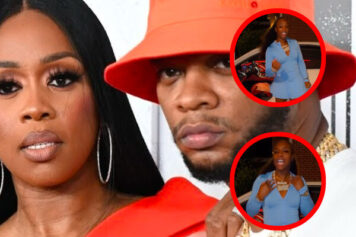We sat down for a discussion with the film’s Director to shed some light on Buddy Bolden and why this project was so important to him.
If you’ve never heard of Buddy Bolden, it’s imperative that you check out the film that gives us a glimpse into the times and music of the man that is credited with having created Jazz, one of America’s few indigenous art forms and its earliest and most important cultural export.
https://www.youtube.com/watch?v=80D1UrXqUsE
His never-heard-before sound fused gospel, the blues and ragtime with his cornet’s improvisational genius to influence the course of popular music in ways that few ever have, before or since.
In the film “Bolden”, which premieres nationwide in movie theaters today, Friday, May 3rd, director Dan Pritzker set out to unravel some of the mystery around Jazz’s roots. He paints a portrait of the genre’s first true genius.
Charles “Buddy” Bolden was born in New Orleans in 1877 and was a bandleader sensation before Louis Armstrong. He was the first cornet player to emerge from ragtime and blues, playing a new kind of music.
Jelly Roll Morton’s “Buddy Bolden’s Blues” was a rare expression of love and dap to this mysterious musical force of nature who was known as “King” Bolden.
https://www.youtube.com/watch?v=vgmZyImasvA
Told in a hypnotic and riveting style, the powerfully inventive film has been Pritzker’s passion project for more than 20 years.
Jazz legend Wynton Marsalis composed a ferocious soundtrack for the movie, in addition to serving as an Executive Producer.
“Musically, I’m a descendant of Bolden’s, just by being from New Orleans and being a trumpet player,” says Marsalis, the artistic director of New York’s Jazz at Lincoln Center, a National Medal of Arts recipient, a multiple Grammy winner, the only artist to win Grammys for jazz and classical records in the same year, along with being the first musician to win the Pulitzer Prize for music.
“Everything that came after him was always music I was interested in, in terms of American cornet solos, the style of them and variation. Yet people didn’t talk about Bolden. Older musicians would say he played loud; he had many women, he drank — his story was really like a rock ’n’ roll story. If you take what people know of a rock star, that’s the mythology of Buddy Bolden.”
https://www.youtube.com/watch?v=Bw3P7WO30Yo
We recently sat down for a discussion with the film’s Director to shed some light on Buddy Bolden and why this project was so important to him.
***
The Shadow League: This has been your passion project for over 20 years. What planted the seeds of this film in your mind?
Dan Pritzker: I was playing rhythm and blues and Rock n’ Roll in a band and we’d made a few records. I was well aware that the foundation of all the music I grew up on was Jazz. Whether it was Sly & The Family Stone, Jimi Hendrix, The Rolling Stones, Tina Turner, Jay-Z or whomever, all of them can trace their roots back to Jazz.
My band was doing a gig one night and this guy told me, “I’m reading about this guy Buddy Bolden. He invented Jazz.”
That made me just about fall down. I love music, it’s long been the spiritual foundation of my life. And to say this guy invented Jazz, it really hit me all at once.
I thought, “Isn’t that poetic, tragic and typically American, to relegate a Black man who changed the world to anonymity.” That struck me as being on the long list of America’s sins.

TSL: What were you thinking when you had a chance to let that marinate in your brain?
DP: I thought this guy should be as well known as Albert Einstein or Pablo Picasso. The fact that I didn’t know who he was, and I love all types of music, for me not to have ever heard of this guy, I felt ashamed. I was moved by that realization.
TSL: Illuminate your approach to creating this story from a blank canvas, especially given how little biographical information there is on Bolden.
DP: That was the most enticing part. Not only was there not a mountain of history, there was barely a molehill. It was alluring because it would allow me to make this story larger than a simple biography, to make it less about the man himself but more about the soul of America. That really drove me.
TSL: It took me a few minutes to grasp the intentional ambiguity and disjointed nature of the narrative until I connected the dots, because it is a film about Jazz that also delves into mental illness.
Talk about your style and approach in terms of the film’s architecture and not following a basic timeline or straightforward narrative.
DP: That’s interesting that you use the word architecture. I think the story I made fits within a classical narrative arc, but because of the non-linear nature of it, it almost feels like carving new ground, but it isn’t.
You can be innovative in the narrative approach, but there’s a reason why houses can stand. There are six ways to build a house. And if you think you’re gonna invent the seventh, good luck.
TSL: What was the creative spark that lit a fuse for you when you first began crafting this story and putting thoughts to paper?
DP: The “Aha” moment for me was when I realized that Louis Armstrong came and played a gig in New Orleans that was broadcast on the radio five months before Buddy Bolden died.
That opened a creative door for me to say, “What if Bolden hears this on the radio? What would happen to this schizophrenic guy who essentially hears a version of his own music coming through a vent in his insane asylum?”
That made a pretty broad opening for some non-linear storytelling. The fact that he was schizophrenic, and that it’s a film about Jazz, really lent themselves to this form of storytelling and it was very appealing to me.
TSL: The music in the film was so powerful and pulsating. How was it collaborating with the great Wynton Marsalis, who scored the film and also served as an Executive Producer?
DP: Wynton is a force of nature. One of the greatest privileges of my life is having had the opportunity to work with him. The music really was one of the main characters in the narrative, and that required Wynton to confront me about things that he disagreed with.
At the end of the day, he knew that I had a narrative purpose. It led to a real warm relationship.
I have huge respect for the guy.

TSL: What was unique about working with him?
DP: I have never ever, in my creative life, worked with somebody where, I don’t think Wynton and I had a deal until he spent about three weeks in the recording studio. Because he wanted to see that I was serious, he wanted to see my passion and my approach.
I don’t know anybody else in the world who would have given me that type of time without having a 60-page contract ready before we did anything.
The other thing I love about Wynton is that he’s a real guy. He’s just a decent, warmhearted, extremely hard-working person.
TSL: What do you want the viewer to take away from the film once the final credits roll?
DP: I want them to say, “I’m glad I know who Buddy Bolden was. He changed my life.”
Because no matter what type of music you grew up listening to, I bet it had a lot to do with Buddy. Music was the center of my life, and a lot of my friends lives, growing up.
We only had three channels on the television, but there were more than 20 on the radio. Music was fundamental to us, and it all came from this one place. It’s quintessentially American.
TSL: What did you learn about yourself in making this film?
DP: That I’m able to persevere and that I have a lot of patience. And I learned how to better calibrate my imagination with the real ability to capture something.
You can think of all sorts of wild things that you want to do cinematically, but it’s another thing to execute and pull it off in film.



